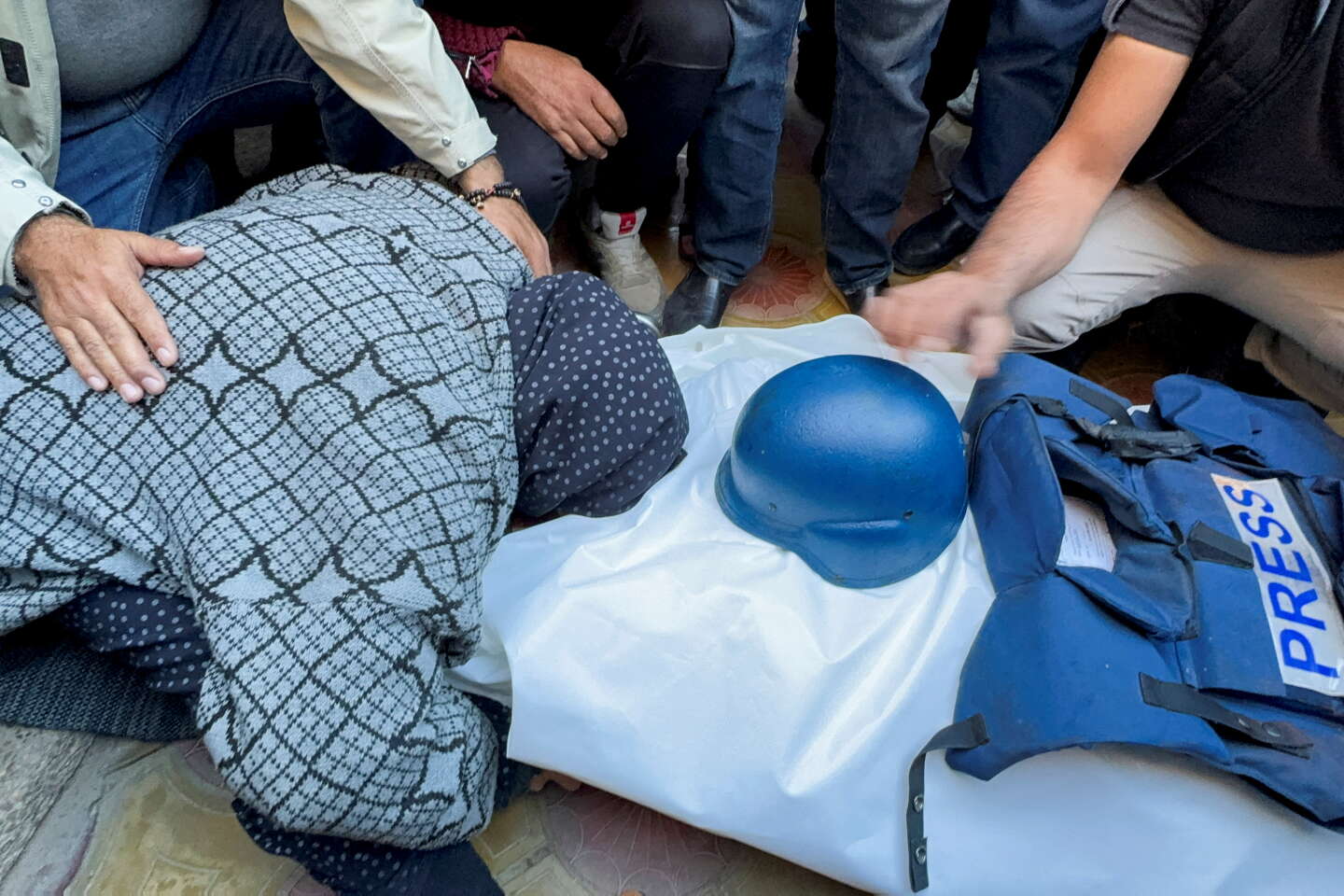


The quality of a democracy is measured by many criteria, including respect for freedom of information. By this standard, Israel's determination to silence Palestinian and international media in Gaza can only be a cause for concern, and must be strongly condemned. A collaborative investigation coordinated by Forbidden Stories with 13 international media, including Le Monde, highlights, despite Israel's denials, an aggressive strategy toward the press, pursued relentlessly since the start of the ruthless war against the narrow strip of land following the massacres of Israeli civilians by Hamas on October 7.
To date, over a hundred Palestinian journalists have been killed in bombardments, even when wearing helmets and bulletproof vests clearly identifying their profession. This bloody toll, unprecedented in its scale, means that they are now associated in the minds of Gazans with the idea of imminent death, and that it is best to keep them at a distance.
As our investigation shows, the Israeli military appears to be systematically attacking media representatives. The destruction of the Press House in Gaza, supported financially by Norway and Switzerland, and the assassination of its founder, Belal Jadallah, killed by tank fire as he took an evacuation route declared safe by the Israeli army, are examples of the military's tactics, which spare nothing and no-one. The strikes targeting international press agencies, including Agence France-Presse and Reuters, is a case in point.
Moral decline
Never before has Gaza been closed to international journalists for months on end. This information blockade imposed by Israel must end as soon as possible. It has been accepted without any criticism from its allied democracies, while the same democracies are speaking out, and rightly so, about violations of the duty to inform by authoritarian regimes. A double standard that precipitates the moral decline of this predominantly Western camp.
The Israeli army had already bombed international press offices in 2021, during the previous Gaza war. A year later, the Qatari Al Jazeera reporter Shireen Abu Akleh was killed by an Israeli soldier's gunfire, initially denied by the army, while covering a military operation in Jenin in the West Bank. She was wearing a flak jacket indicating her status as a journalist. These warnings should have alarmed those who continue to view Israel as what it was, not as what it is becoming under pressure from the far right.
Israel's strategy of silencing the press is coupled with a nationwide-imposed denial. The banning of Al Jazeera by the authorities is the most obvious and distressing proof of this in this age of information without borders. The self-censorship of the Israeli press, which, with very rare exceptions such as the daily Haaretz, refuses to report on the ongoing carnage in Gaza, is yet another break with a past in which Israel watched the war and its horrors with eyes wide open.
